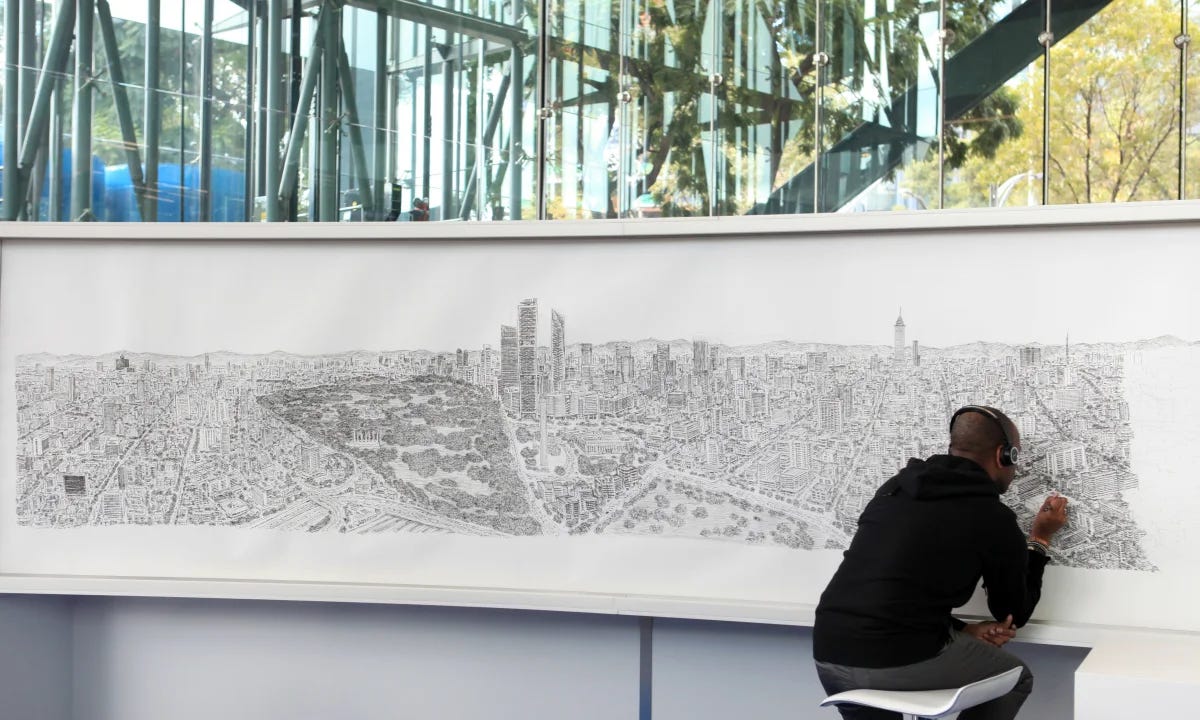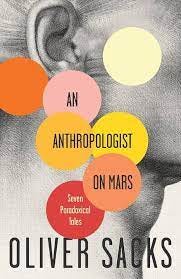The Many Hats of Oliver Sacks
The doctor of man who mistook his wife for a hat
Oliver Sacks, the distinguished neurologist, once wrote about a patient who mistook his wife for a hat. Years later, Temple Grandin would hand Sacks a hard hat to pass him off as a sanitation engineer when visiting a meat processing plant. In both cases, a hat revealed how readily we mistake - or can be misled about - who someone is. These two incidents provide a fitting metaphor for examining how Sacks himself wore different conceptual “hats” throughout his career, particularly how his neurologist's hat often concealed his remarkable work as an accidental anthropologist.
From About to With: An Anthropological Approach
Anthropologist Tim Ingold argues that while many disciplines study people, most treat what people know and do merely as beliefs and practices to be recorded and analysed. He writes: ‘But anthropology is different. For in anthropology, we don't just study people. We study with people’ (Ingold 2024, p.37). This distinction between studying “about” versus studying “with” lies at the heart of understanding Sacks' unique contribution to both medicine and our broader understanding of human experience.
Consider his work with Temple Grandin. Far from the clinical examination rooms of New York, Sacks found himself crawling through chutes designed for cattle, trying to see the world as both Grandin and the cattle saw it. He didn't just observe her work - he tried her squeeze machine to experience how deep pressure could calm anxiety. He participated in her professional world, even sharing in the deception of wearing a hard hat to access restricted areas. As Grandin guided him through the facility, she explained, “Keep the hard hat on. Keep it on the whole time. You're a sanitary engineer here” (Sacks 1995, p. 282). This wasn't just a doctor gathering clinical data - it was someone trying to understand another's way of being in the world by temporarily inhabiting it himself.
The Amateur Scholar
This approach exemplifies what Ingold calls amateur study, where “amateur” refers not to a lack of expertise but to work driven by genuine care and curiosity. The word amateur has roots in the Latin amare, which means: to love. Sacks could have fulfilled his professional obligations without ever leaving his office, without crawling through cattle chutes or traveling to small villages in Italy with his patients. His medical training required him to observe, diagnose, and treat neurological conditions. But it was his deep curiosity about human experience pushed him far beyond these boundaries.
Like many ethnographers, Sacks found that his understanding deepened through prolonged engagement with his subjects. With the autistic-savant artist Stephen Wiltshire, he didn't just observe him drawing in a clinical setting - he traveled with him, shared meals, met his family, and watched how he experienced and interpreted new environments. Likewise, when visiting the artist Franco Magnani, he didn't simply analyse his incredibly detailed memory paintings of his hometown Pontito - he traveled with Franco back to Italy to see how the artist engaged with the actual place that existed so vividly in his memory.

The Limits of Understanding
Yet even with such careful observation and participation, Sacks encountered moments that revealed the limits of understanding across neurological differences. In one striking incident with Stephen Wiltshire, they encountered a car with a license plate spelling AUTISM2:
“What does that say?” Sacks asked.
“A-U-T-I-S-M-2.”
“Yes, and that reads?”
“U...U...Utism.”
“Almost, not quite. Not utism–autism. What is autism?”
“It's what's on that license plate.”
To Sacks, this exchange represented Stephen's limited understanding of his own condition. But to many autistic people, Stephen's response makes perfect logical sense. Sacks asked “what is autism?” and Stephen answered with precise accuracy - it was, literally, what was on that license plate. This moment illustrates why we need multiple perspectives and ways of knowing to understand the gamut of human experience.
Beyond Deficits: Seeing the Whole Person
This willingness to suspend judgment and learn from his subjects is perhaps most evident in his encounters with the surgeon Carl Bennett, who had Tourette's syndrome. Rather than viewing Bennett's condition purely as a disorder to be documented, Sacks observed how his seemingly disruptive tics transformed into precise, controlled movements during surgery. Through extended observation in both his home and the operating theater, Sacks came to understand how Bennett's condition wasn't simply a deficit but had become integrated into his identity and professional expertise in complex ways.
The title of his book An Anthropologist on Mars - a phrase Grandin used to describe how she felt studying “normal” people - could equally apply to Sacks himself. Like an anthropologist in an unfamiliar culture, he approached each patient's unique way of perceiving and being in the world with curiosity and openness. When Grandin told him that seeing cattle going calmly to their death made her feel happy because she had helped reduce their fear, Sacks didn't dismiss this seemingly paradoxical response as being the glib remarks often associated with autistic communication. Instead, he tried to understand the logic of her world, even when it challenged his own preconceptions about what constitutes empathy or ethical behavior.
Implications Beyond Medicine
The implications of Sacks' accidental anthropology extend far beyond his own practice. His work demonstrates how stepping outside conventional professional boundaries - removing our familiar “hats” and trying on new ones - can deepen our understanding across neurological and cultural differences. While medical training equips doctors with essential diagnostic and treatment skills, Sacks shows us that there's profound value in complementing this clinical knowledge with anthropological approaches.
This has particular relevance today as healthcare systems increasingly prioritize efficiency and standardisation over deep engagement with patients' lived experiences. A doctor can accurately diagnose autism or Tourette's syndrome without ever leaving their office, but understanding how these conditions are integrated into a person's life, work, and identity requires a different kind of engagement. It requires studying with rather than merely about.
The impact of this approach extends beyond medicine. In education, understanding how students actually learn and experience the classroom might require teachers to experience learning from their students' perspectives. In technological design, companies are recognising that true accessibility comes from designing with disabled users rather than just producing what they think might be useful. Even in scientific research, there's growing recognition that understanding complex systems requires getting down on the ground and seeing things from new angles.
Conclusion: Taking Off Our Professional Hats
When Sacks donned a hard hat to study Grandin's world, he was doing more than just participating in a simple deception. He was demonstrating how sometimes we need to temporarily set aside our professional identities - our familiar hats - to truly understand others' experiences. The fact that he never formally identified as an anthropologist makes his embodiment of anthropological methods all the more significant. It suggests that the deep, participatory understanding championed by anthropology isn't just a professional methodology but a fundamentally human approach to understanding others.
Perhaps most importantly, Sacks shows us that being an expert doesn't mean having all the answers. His encounters remind us that true understanding often comes not from our expertise but from our willingness to learn from others' ways of seeing and being in the world. In this sense, we are all potential anthropologists on Mars, trying to make sense of experiences and perspectives different from our own.
References
Cosslett RL (4 May 2017) ‘“This was my form of language”: the artist who draws cities from memory’, The Guardian, https://www.theguardian.com/cities/2017/may/04/artist-draws-cities-memory-stephen-wiltshire
Ingold T (2021) ‘In Praise of Amateurs’, Ethnos, 86(1):153–172, doi:10.1080/00141844.2020.1830824.
—— (2024) ‘Anthropology is good’, American Ethnologist, 51(1):37–39, doi:10.1111/amet.13245.
Sacks O (1995) An Anthropologist On Mars: Seven Paradoxical Tales, Knopf Doubleday Publishing Group.
—— (1998) The Man Who Mistook His Wife For A Hat: And Other Clinical Tales, Simon and Schuster.



